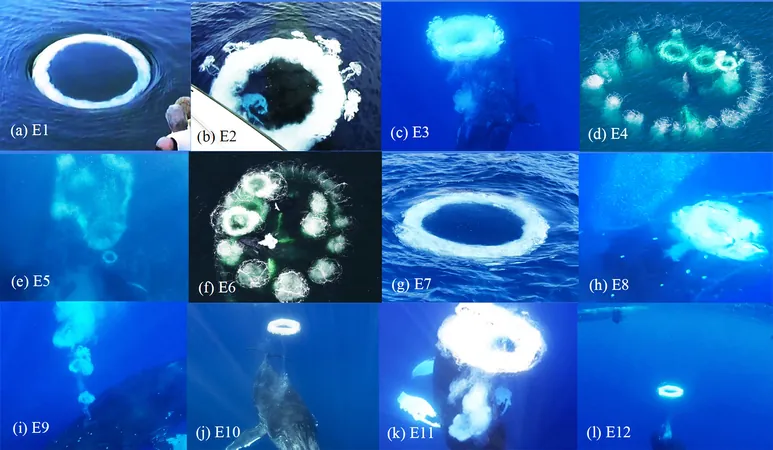
Unlocking Earth's Ancient Secrets: Meet LUCA, Our Common Ancestor!
2025-05-08
Author: Lok
A Journey to Discover Life's Origins
For centuries, the quest to understand the origins of life on Earth has fascinated scientists around the globe. At the heart of this inquiry lies LUCA—our last universal common ancestor, the pivotal figure from which all life diverged.
Flashback to 4.2 Billion Years Ago!
A dedicated team of evolutionary biologists from the University of Bristol has just made a groundbreaking discovery: LUCA lived around 4.2 billion years ago! This predates the cataclysmic asteroid storms known as the Late Heavy Bombardment by nearly a billion years, implying that life managed to flourish amidst harsh and chaotic environments.
The Cutting-Edge Science Behind the Age Revelation
To uncover LUCA’s age, researchers employed innovative tools—melding fossil records with isotopic analyses and advanced genetic techniques. By focusing on ancient gene duplications that occurred before LUCA’s appearance, they created a detailed timeline of life's earliest moments.
A Sophisticated Microbe, Not Just a Simple Cell!
LUCA was far from simplistic. With a genome measuring at least 2.5 megabases and around 2,600 proteins, it rivals modern bacteria in complexity. Imagine a microorganism that not only thrived but also boasted an early immune response, indicating its ongoing battle against ancient viruses!
Ecosystems on the Dawn of Life
Interestingly, LUCA didn’t operate in isolation. Its metabolism produced chemical byproducts that nurtured surrounding microbes, hinting at the rapid emergence of intricate ecosystems. Professor Tim Lenton of the University of Exeter suggests that LUCA played a crucial role in establishing a recycling ecosystem that sustained early生命.
A Remarkable Method of Dating the Ancestor
Utilizing molecular clock analysis and innovative cross-bracing methods, researchers overcame challenges posed by the scant fossil record from LUCA's era. This meticulous approach yielded a surprisingly precise estimate of its age, shedding light on the conditions that made Earth habitable soon after its formation.
Connecting the Dots of Life's Evolution
LUCA's genetic legacy is profound. The universal genetic code, ATP energy reliance, and the chirality of amino acids all trace back to this ancient microbe, emphasizing its pivotal role as the progenitor of all cellular life.
Implications for Life Beyond Earth
As we deepen our understanding of LUCA and early Earth, we also glean insights that could inform our search for extraterrestrial life. The speed at which ecosystems emerged on our planet suggests that similar processes could occur on Earth-like planets in distant corners of the universe.
What's Next in the Research?
The journey doesn't end here. Future research aims to explore the evolution of prokaryotes, emphasizing Archaea and their methanogenic relatives—key players in our planet's history and potential indicators for life beyond our own.
A Collaborative Milestone in Science
This landmark study, driven by the University of Bristol and featuring collaborations with esteemed institutions like University College London and Utrecht University, offers a revolutionary perspective on our common ancestor, LUCA.
Dive Deeper into Discovery!
For those eager to learn more, the study titled ‘The nature of the last universal common ancestor and its impact on the early Earth system’ is published in **Nature Ecology & Evolution**. Don’t miss out on the thrilling exploration of our planet's earliest chapters!


 Brasil (PT)
Brasil (PT)
 Canada (EN)
Canada (EN)
 Chile (ES)
Chile (ES)
 Česko (CS)
Česko (CS)
 대한민국 (KO)
대한민국 (KO)
 España (ES)
España (ES)
 France (FR)
France (FR)
 Hong Kong (EN)
Hong Kong (EN)
 Italia (IT)
Italia (IT)
 日本 (JA)
日本 (JA)
 Magyarország (HU)
Magyarország (HU)
 Norge (NO)
Norge (NO)
 Polska (PL)
Polska (PL)
 Schweiz (DE)
Schweiz (DE)
 Singapore (EN)
Singapore (EN)
 Sverige (SV)
Sverige (SV)
 Suomi (FI)
Suomi (FI)
 Türkiye (TR)
Türkiye (TR)
 الإمارات العربية المتحدة (AR)
الإمارات العربية المتحدة (AR)